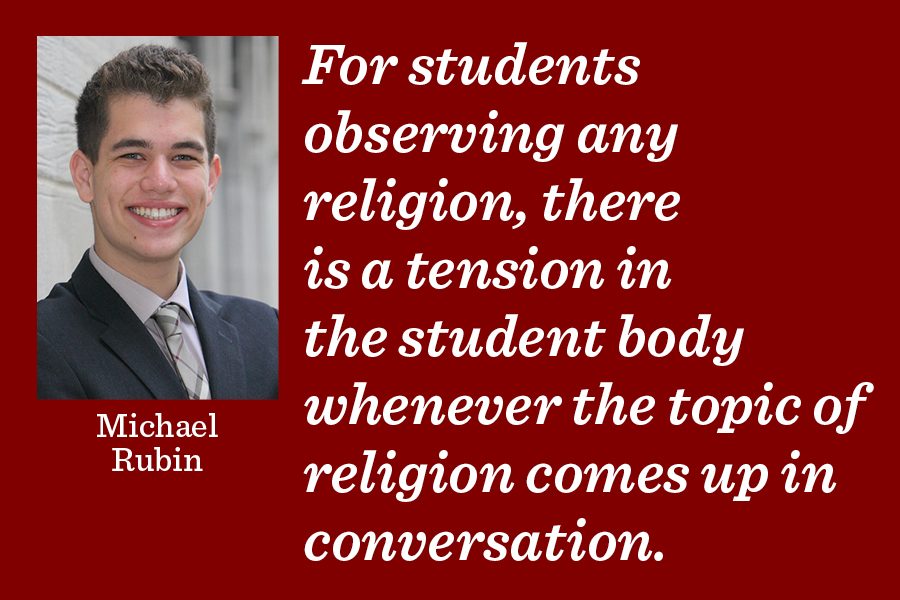Swastika graffiti exposes lack of religious education
April 19, 2018
As a fifth grader, I remember walking into a bathroom stall, noticing immediately a large swastika drawn in Sharpie on the maroon wall. Earlier this year, the word “Jew” was written on the wall outside the journalism classroom. Just two weeks ago, another swastika was found in a bathroom stall in the middle school.
Although I can’t attribute these acts to miseducation by our school, I can say that we need to be doing a better job.
I am an observant Jew. I observe Shabbat, I attend synagogue and I am involved in the Jewish community across Chicago. My Judaism helps guide the decisions I make, the food I eat and the questions I ask. I feel proud to be Jewish and to be surrounded by Jewish family members, but I have never felt that way at school.
At the Lab Schools, the student body is comprised of people from nearly every walk of life. Whether it is religious or racial, Lab is truly a melting pot of culture and presents the opportunity for students to gain true insight into the lives of people who are fundamentally different from one another. But for whatever reason, instead of discussing and learning about Lab students’ identities, they often go ignored.
After years of facing questions about why I miss school every year to go to synagogue during fall quarter, why I never buy a Christmas tree and what foods I am allowed to eat, I have realized there is a lack of education in the required Lab curriculum concerning different religious identities and practices.
I have been a student at Lab for 14 years, and the only memorable experiences I have had learning about different religions was in Early World History class as a freshman and at the now-diminished Rites of May festival.
Although these attempts at education on religion may be sufficient for some, I believe it is inherent in any community to learn about how different identities shape the personalities and values of its members. Not only do we need more education, we need more acceptance and tolerance of those who are different from ourselves.
For students observing any religion, there is a tension in the student body whenever the topic of religion comes up in conversation. This lack of education about religion at Lab has contributed to a lack of exposure to religion firsthand and discomfort or intolerance during conversations about religion. This creates an unnecessary limitation for relationships at Lab that can be easily avoided through open dialogue and platforms to discuss and learn about each others’ religions.
We need to expose our students to this information and how it plays a role in religious students lives at Lab because it will create a more accepting, informed and cultured environment.
In order to serve as a truly diverse and enriched community, we need to invest in learning about those who are different from ourselves.
That way, maybe we can put a stop to anti-Semitic, racist and bigoted comments, actions and graffiti.































































